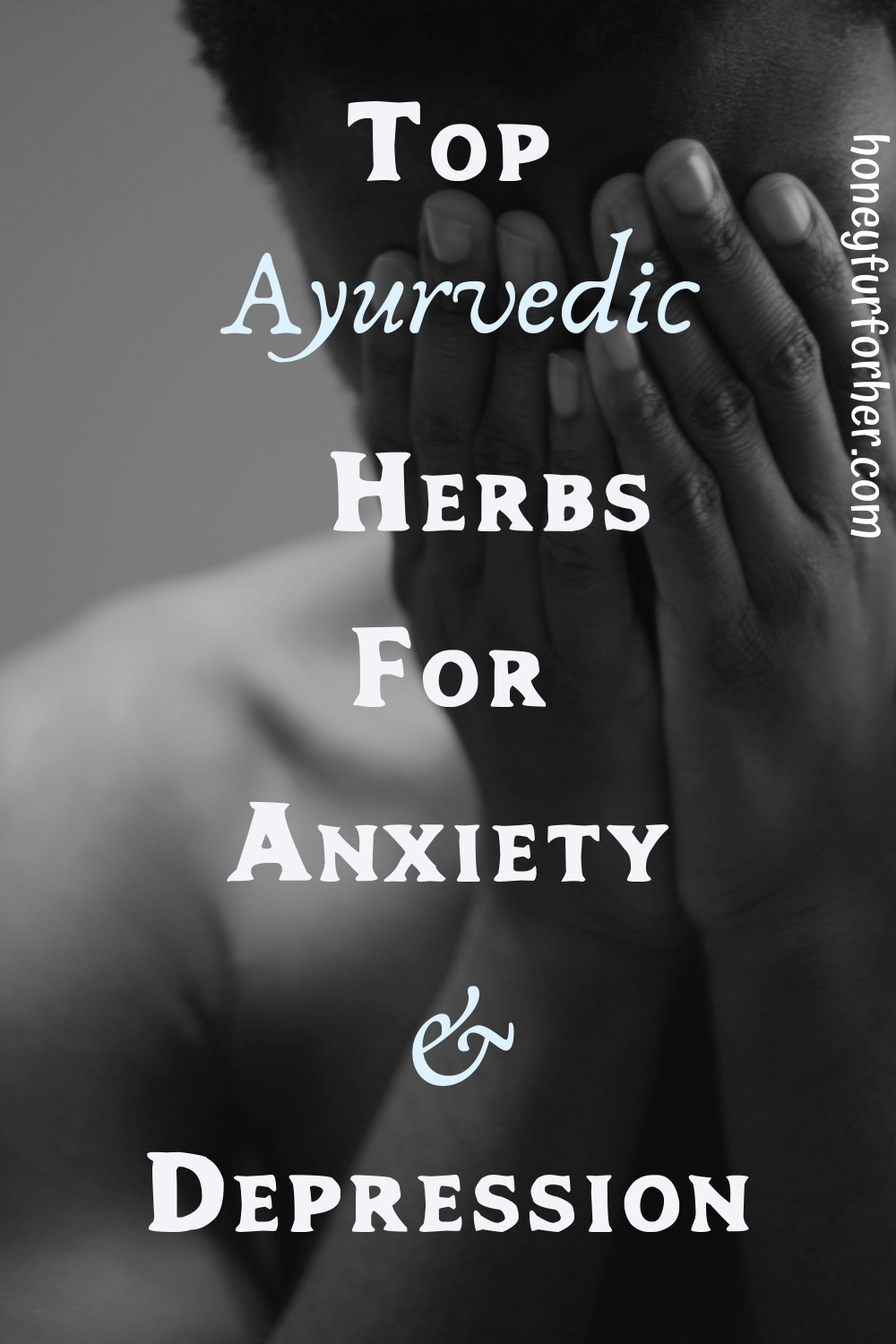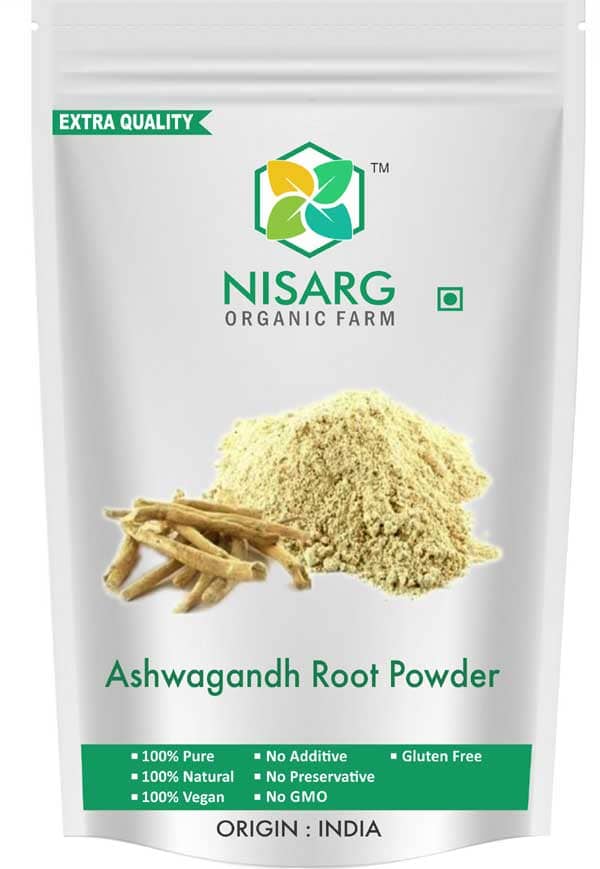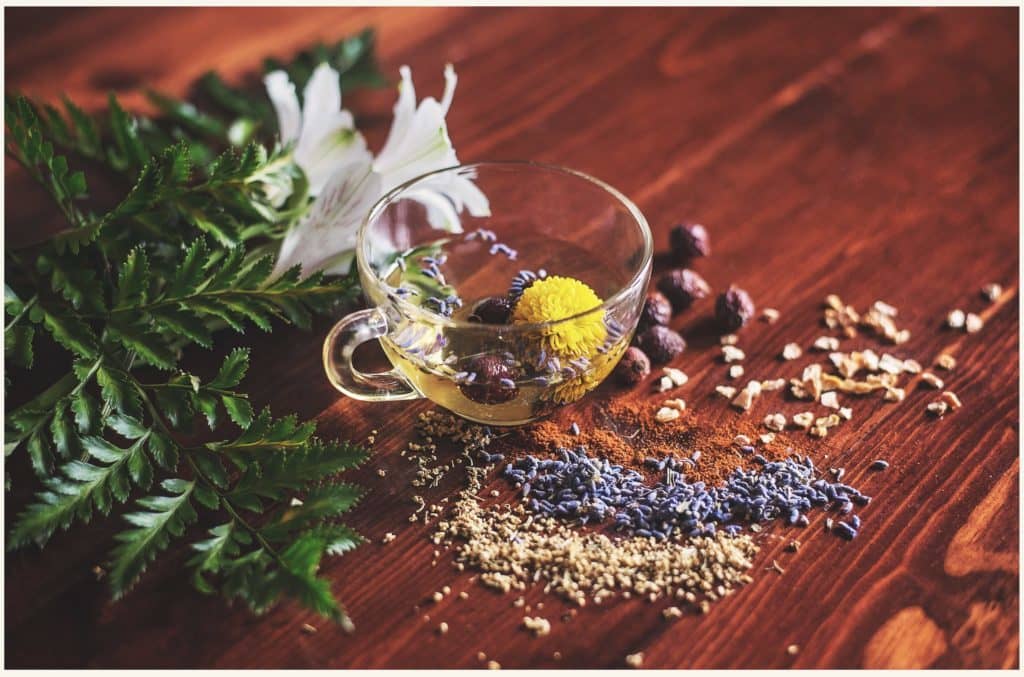
Did you know that the anxiety disorder is among the top common mental illnesses in the United States, whereas the World Health Organization claims that depression is one of the prime reasons for disability and ill health, globally? But that’s not the surprising part. Around 36.9% of people suffering from anxiety never receive any treatment despite anxiety being highly-treatable! Plus, further research suggests that about one-half of those suffering from anxiety also suffer from depression. So what do these numbers tell you? One, there’s an increasing need to tackle these issues with better information at hand. Two, you can treat both anxiety and depression with natural, organic means. What are we hinting at? Simple: Herbs for anxiety and depression.
“Anxiety is when you care too much about everything. Depression is when you don’t really care about anything. Having both is just like hell.”
Don’t believe us? Recent research suggests that nutritional and herbal supplements can prove to be extremely effective in treating anxiety and related disorders, that too without the fear of any serious side-effects. So let’s look at how you can treat these underlying issues and change your lifestyle for the better:
Did You Know?
The depression rate in India in 2016-17 amounted to 36%.
Top-7 Ayurvedic Herbs for Anxiety & Depression: A Lowdown
“During depression, your feel good hormones are not competent anymore to handle many situations, hence, putting you in different moods. Some ayurvedic herbs and spices have proved to help reduce the symptoms of depression.” – Dr. Ashutosh Gautam, Clinical Operations and Coordination Manager, Baidyanath
1. Ashwagandha (Withania Somnifera): The Natural Cortisol Manager
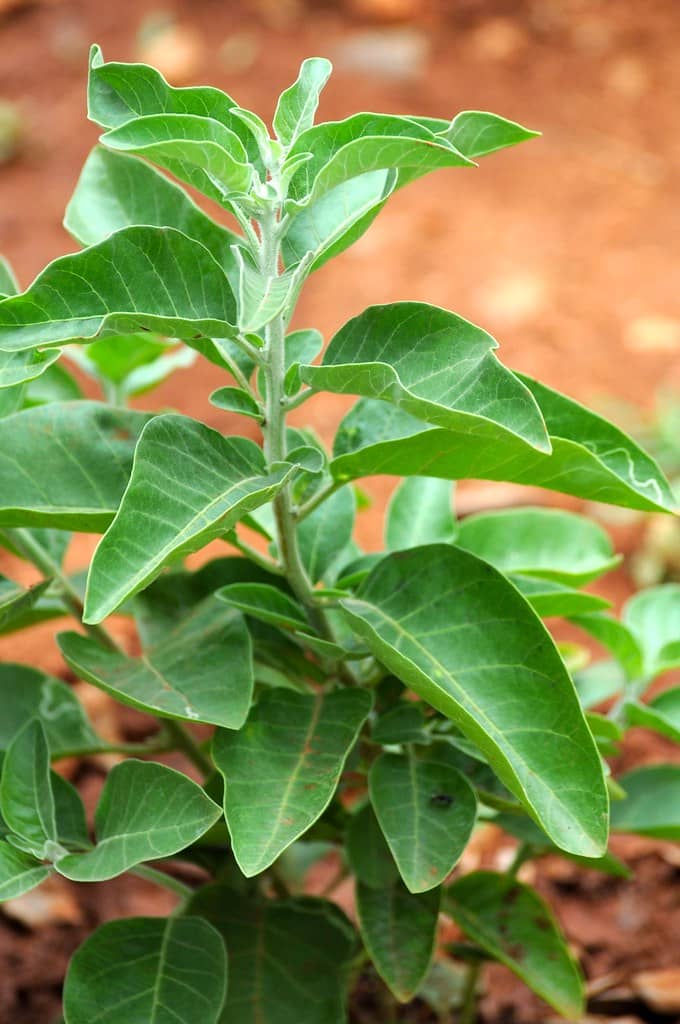
If you’re looking for one of the top herbs for anxiety and depression, Ashwagandha should definitely be on your shopping list. Over, 4000 years old, this multi-functional herb comes with anti-depressant, anti-anxiety, and anti-inflammatory properties. These especially come in handy if you’re someone who experiences stress on a regular basis due to emotional, mental, or physical fatigue. Let’s look at some of its other benefits:
- Relieves the ill-effects of stress and anxiety
- Boosts mental focus and concentration
- Helps deal with the incessant mood swings
- Strengthens you from the inside out
- Improves vitality and fertility
- Promotes natural sleep patterns and helps deal with insomnia
- Rejuvenates and tonifies the body systems
How To Consume It?
You can consume Ashwagandha in the tablet, liquid extract, or powder forms. Here’s a snapshot of its recommended dosage:
- Tablet: 1–2 tablets, once or twice daily
- Liquid Extract: 30 ml to be added to water/juice. You can take this 1–3 times daily.
- Powder: 500–600 mg of Ashwagandha per day for 6–12 weeks may reduce anxiety.
Recipe For A Powerful Ashwagandha Tonic:
Ingredients:
- Ashwagandha powder: 1–2 teaspoons
- Milk: 2 cups
- Raw sugar: 1 tablespoon
- Cardamom powder: ⅛ teaspoon
Steps to Make It:
- Add 1-2 teaspoons of powdered Ashwagandha in 2 cups milk.
- Let it simmer for at least 15 minutes over low heat.
- Then, add 1 tablespoon raw sugar and ⅛ teaspoon cardamom powder.
- Keep stirring until it mixes well.
You can consume this tonic 1-2X a day.
Side-Effects to Keep in Mind
Consuming this herb in excess (over 50 ml) a day can cause:
- Stomach irritation
- Vomiting
- Diarrhoea
- Heartburn and acidity
Precautionary Measures:
- People suffering from heartburn, diabetes, gastritis, sore throat, mouth ulcers and GERD should avoid consuming it.
- Consult your doctor before giving it to children who are below 5 years of age.
- Lactating and pregnant mothers should not consume this herb.
2. Brahmi (Bacopa Monnieri): The Best Adaptogen Herb for Stress
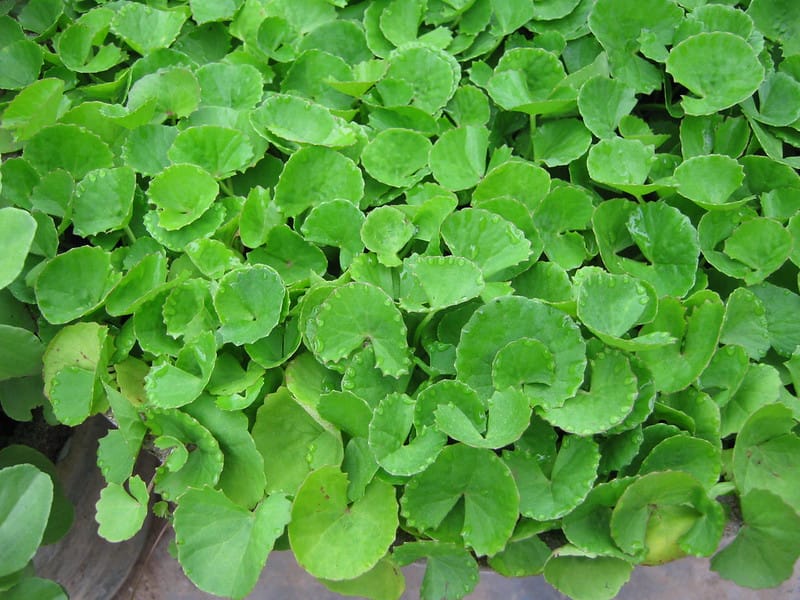
Did you know that some herbs can help the body to adapt better to stressful and unfamiliar situations? Brahmi is one such herb. Due to the presence of powerful antioxidants, this herb offers the following health benefits:
- Improves memory, concentration, and intelligence
- Boosts the production of serotonin levels in the brain thereby, calming down the brain and providing relief from anxiety, nervousness, and stress
- Offers strength and boosts immunity
- Improves mental alertness and reduce pain as well as inflammation
So if you’re looking for one of the best brain-booster herbs for improving your brainpower and for memory loss, Brahmi should be your go-to Ayurvedic medicine!
Did You Know?
According to a study, Brahmi displays anti-anxiety effects comparable to those of lorazepam (benzodiazepine), a prescription medication used to treat anxiety!
How To Consume It?
Brahmi is available in the capsule, syrup, and liquid extract forms. The recommended dose for each is as follows:
- Tablet: 300–450 mg per day
- Liquid Extract: 10-20 ml
Note: You can consume the powdered form with hot water or have it with ghee.
Side-Effects to Keep in Mind
Consuming it in excess can cause:
- Nausea
- Vomiting
- Diarrhoea
- Headache/fainting
3. Jatamansi (Nardostachys Jatamansi): A Powerful Herb for Peaceful Sleep
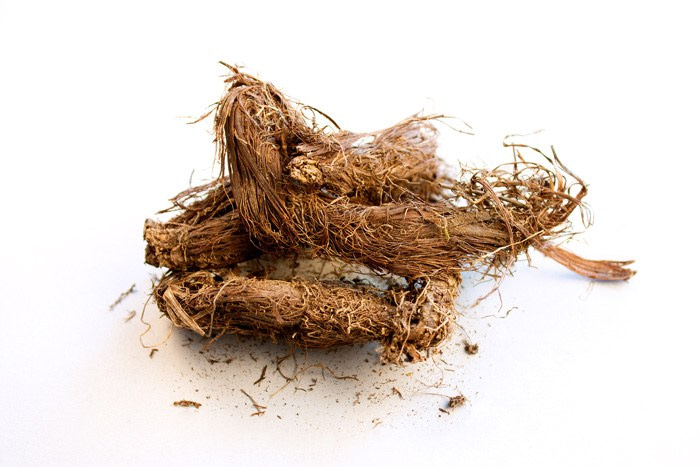
It’s no secret that sleep evades anyone who feels stressful and anxious all the time. Instead of consuming the harmful sleeping pill, why not opt for herbal remedies for anxiety such as Jatamansi. This powerhouse of a herb comes with anti-depressant, anti-stress and anti-fatigue properties and offers the following benefits:
- Aids in better sleep by relaxing the body and mind
- Acts as a calming agent and reduces stress
- Acts as a therapeutic herb and treats depression by channelling the mind towards positivity
- Promotes better digestion
- Enhances the female reproductive system
- Acts as an immunity-booster
- Hinders excessive hair fall
Did You Know?
Data suggests that consuming four grams of Jatamansi, about 3X a day decreased the time to fall asleep by 61% in patients suffering from insomnia.
How To Consume It?
It is available in the essential oil and powder forms. The recommended dose for each is as follows:
- Powder: 1-3 gm to be taken with honey, ghee, or water.
- Essential oil: Please consult your doctor to understand the dose and make sure to do a skin patch test to ensure you don’t have any underlying allergies.
Side-Effects & Precautionary Measures to Keep in Mind
- Pregnant and lactating mothers should avoid using this herb.
- Women experiencing heavy bleeding during their period should consult a doctor.
- People suffering from hypersensitivity should avoid it.
- People suffering from high blood pressure should consult their doctor.
Consuming this herb in excess can cause:
- Loose stools
- Nausea
- Vomiting
- Frequent urination and abdominal cramps
- Spikenard essential oil may cause eye irritation.
4. Pudina (Peppermint): A Natural Muscle- & Mind-Relaxant
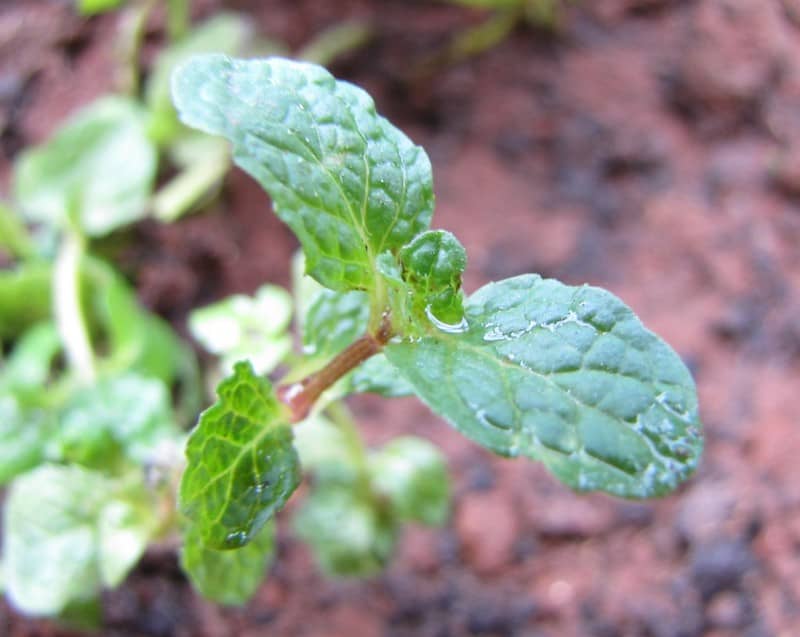
Peppermint is possibly one of the most common herbs you’ll find everywhere – from using it in fragrances and in food to making essential oils and beauty-care products, Pudina proves its worth over-and-over. But did you know that peppermint also acts as a powerful herb for depression and is considered to be one of the best herbs for the brain?
Peppermint has been in use since time immemorial to treat various kinds of nervous system disorders due to its calming and soothing properties. Let’s take a look at its all-round health benefits, shall we?
- Possesses energizing and uplifting properties, and can be used to offer relief from feelings of lethargy
- Reduces feelings of frustration, anxiety, and fatigue
- Calms the nerves and has a cooling effect on the mind, body, and soul
- Keeps insomnia at bay due to its relaxing properties
Did You Know?
“Peppermint essential oil has a calming and soothing effect on anxiety and depression.” – University of Maryland Medical Center
How To Consume It?
It is typically used topically in the form of essential oil. Additionally, you can also consume it as a herbal tea. Here’s a simple recipe for making your own peppermint tea at home after a tiring day:
- Take 4-5 fresh peppermint leaves and crush it OR about 1 tablespoon of dry peppermint leaves.
- Add it to a cup of boiling water.
- Let it steep for 2-4 minutes on low heat.
- Strain and enjoy!
Note: There is no standard dose for this herb in the essential oil form. Please consult your doctor to understand the recommended dose basis of your health history and issues.
Side-Effects to Keep in Mind
- Few cases of heartburn or burning sensations in the rectal area
- Dermatitis for people who may be allergic to it
- Pregnant and lactating mothers should not consume this herb
5. Maca (Lepidium Meyennii Walp): An Energy-Booster Like No Other
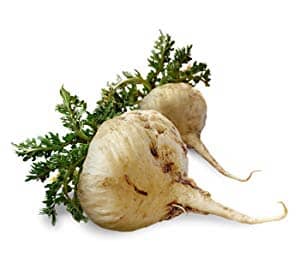
One of the more uncommon herbs on the list, Maca or the Peruvian Ginseng herb acts as a natural energizer. So, if you feel lethargic and exhausted all the time, Maca is for you.
It’s multipurpose benefits include:
- Increased stamina and energy
- Decreased levels of anxiety and better sleep promotion
- A balanced mood and hormone levels in the body leading to reduced stress
- Increased sexual wellness in men
- Better mood due to the presence of compounds such as flavonoids
- Reduced levels of blood pressure as well as depression according to a study
- Aids in weight loss
Did You Know?
Maca root can alter your mood swings in a better and more positive direction as it improves the overall functioning of the endocrine glands.
How To Consume It?
The best way to consume Maca is to mix it in your smoothie, juice, coffee, etc. The recommended dose for Maca is 1,500-3,000 mg per day. Note that either roots or extract of maca should be consumed.
Here’s a delicious recipe you can try:
Maca Cacao Hot Chocolate Recipe
Ingredients:
- Almond Milk/Normal Milk: 2½ cups
- Cacao Powder: 2 tablespoons
- Maca Powder: 1 tablespoon
- Maple Syrup/Pure Honey (as per taste)
- Extra Virgin Coconut Oil: ½ teaspoon
- Pinch of Cinnamon & Himalayan Pink Salt
- Dark Chocolate Shavings (optional)
The Process:
- Start by mixing the milk, cacao powder, maca, maple syrup, coconut oil, cinnamon, and salt in a blender.
- Transfer to a pan and heat it.
- Notice the consistency and see if you need to add more milk. It shouldn’t be too thick.
- Once warm enough, add the shaved dark chocolate and enjoy!
Side-Effects to Keep in Mind
- Do not consume this herb if you’re pregnant, breastfeeding, or have a thyroid problem.
6. Chamomile (Matricaria Chamomilla): An Anti-Inflammatory Herb for Everlasting Calm!
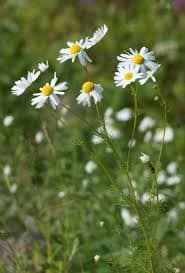
We’re sure you must have heard of this one and why not? It is one of the most popular herbs that’s emerging as a potent caffeine-alternative! Chamomile has an apple-like smell and comes in two variants, namely: German chamomile and Roman chamomile. Plus, it is loaded with anti-oxidants and offers a host of health benefits such as:
- Reduces anxiety and depression
- Promotes child-like, peaceful sleep
- Improves overall digestive health
- Treats diarrhoea, stomach ulcers, nausea, and gas
- Lowers inflammation and reduces the risk of cancer
- Promotes better blood sugar control
- Improves heart health and boosts immunity
Did You Know?
According to a study conducted in 2016, it was seen that “taking 500 milligrams of chamomile extract three times a day for 12 weeks significantly reduced moderate-to-severe symptoms of generalized anxiety disorder.”
How To Consume It?
Chamomile is available in a variety of forms such as capsules, liquid extracts, tinctures, teas and topical creams. Here’s the recommended dose for each:
- Capsules: 400-1600 mg (in divided doses)
- Liquid extract: 1-4 ml, 3X a day
- Tincture: 15 ml, 3-4X a day
- Tea: 1-4 cups of tea a day
Side-Effects & Precautionary Measures to Keep in Mind
- Skin irritation/allergies for some
- Eye irritation/conjunctivitis if it comes in direct contact with the eyes.
- Avoid consuming it if you’re pregnant, lactating, or have any liver/kidney disease or bleeding disorders.
- Speak to a doctor before giving this herb to a child.
7. Lemon Balm (Melissa Officinalis): An All-Healing Herb for Your Brain
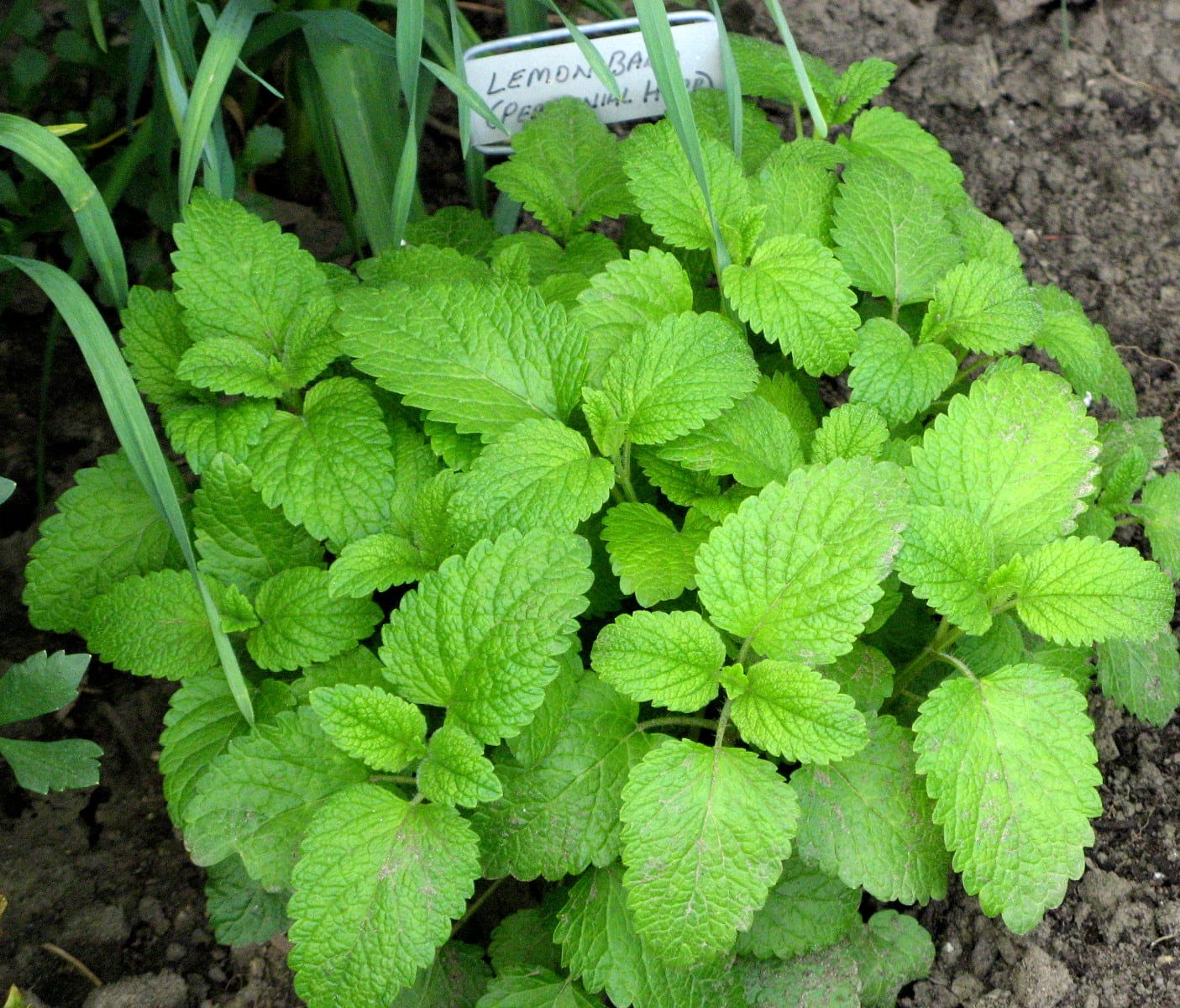
Found abundantly throughout the globe, this lemon-scented herb is one of the best gifts you can give your body. It belongs to the mint family of plants and is known to have a sedative-like, calming effect on the body. Let’s look at its therapeutic benefits on the whole:
- Treats anxiety, nervousness, and insomnia
- Relieves stress
- Improves cognitive functioning, especially in patients suffering from Alzheimer’s diseases according to the Journal of Neurology, Neurosurgery, and Psychiatry
- Treat cold sores and relieves indigestion
- Reduces nausea and menstrual cramps
- Provides relief from headache and tooth pain
How To Consume It?
It can be consumed in the capsule or the powder forms, however, it is often consumed in the tea form as well. The recommended dose is as follows:
- Capsule: 300 mg tablets, 2X a day
- Powder: 1 teaspoon a day can be added to your tea/a cup of yoghurt/ a bowl of ice cream!
Note: To treat insomnia, you can drink a cup of tea brewed with valerian and lemon balm before bed. There are plenty of herbal tea powders available online, so do your research and go for it!
Side-Effects to Keep in Mind
Consuming it in excess can lead to:
- Headache
- Frequent and painful urination
- Increased body temperature
- Nausea/Vomiting
- Stomach pain
- Dizziness
- Skin irritation and allergies
In addition to these, please speak to your doctor if you’re:
- Pregnant
- Lactating
- Scheduled for a surgery
- On thyroid or glaucoma medicines
- On sedatives and drugs that affect serotonin
- Administering this herb to a child
Disclaimer: As a general rule of thumb, please consult your doctor before self-prescribing any of the above-mentioned herbs. After all, prevention is better than cure, right?
So now that you have all the information at hand, don’t let the stigma and lack of support stop you from getting the right treatment. Try these natural remedies for anxiety and depression, and Godspeed to a happier and healthier tomorrow.
Did you find this post useful? Would you like to get back to it later? Save THIS PIN below to your Pinterest Natural Living or Ayurveda board!
